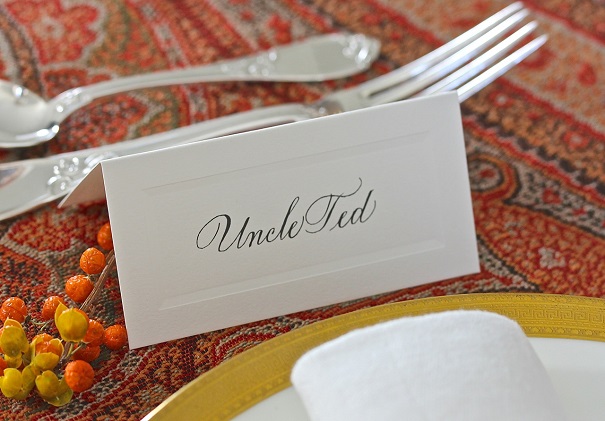Family-centric holidays like Thanksgiving can be fraught with tension. I doubt the original Pilgrims sweated the details the way we do today. Who carves the turkey? Do we need to wait for everyone to have food on their plates before we start eating? Who’s saying grace this year? And then there are the oddball friends and relatives whom we see once or twice a year. They ask invasive questions, take the day to let their passive-aggressive flag fly, or drink too much.

These are the moments when I am grateful to be half-WASP. We know how to handle awkward family situations because we’ve had so much experience – decades, centuries – of sloshed Uncle Ted pitching over the turkey as the carving knife sticks out of the antique dining room table, vibrating in the wood like a bad toss at mumblety-peg. People like to make fun of WASPs because it’s politically safe to make fun of us. I also like to think people make fun of us because we’re one of the few ethnic groups left who can laugh at ourselves. Seriously, the rest of you need to lighten up. It’s very liberating to poke fun at yourself.
Family holidays are when WASPS truly come into their own. We have learned to ignore just about anything. You want to know why my daughter’s not married with kids yet? Pass the potatoes, please. Someone else asks why the Republicans can’t find a good presidential candidate. More wine, anyone? This is the key to having a nice Thanksgiving holiday: ignore everything. Don’t engage. Change the subject. Turn the table. Avoidance is the most successful strategy when dealing with the family ass. It is also the polite thing to do, which delights my social secretary’s soul, but that’s not the point here. The object of this strategy is to give yourself as pleasant a Thanksgiving Day as possible, free of anger, anxiety, pain or stress. Just remember to keep it superficial and light: food, weather, Game of Thrones – these are topics people can agree on.
There are other etiquette questions related to Thanksgiving and most of them are easily resolved if dealt with before you sit down to dinner. For example, if there are football fanatics in your family, work out the dinner time around the games, so guests aren’t inhaling the meal you spent 8 hours preparing, in order to get back to the TV before halftime is over. The question of who carves the turkey should be worked out in advance, so no simmering resentment over the possession of the carving set is brought to the table. Another way to deal with this is to bring a pre-carved turkey to the table. It might not be the Norman Rockwell moment you imagined, but at least everyone gets a piping hot serving of turkey.
One should always wait to eat until everyone has been served. And if someone is saying grace, it’s a real faux pas to start eating before that happens. The person who is to say grace should be asked in advance, so they are prepared. It’s not fair to ambush a guest or family member by asking them to give the blessing just as dinner is served. My father did this to me once when I was a teenager. I was so surprised that I blurted out the first thing that came into my head, which I must have read somewhere: “Good food, good meat, good God, let’s eat!” He was not amused. Fortunately, being half WASP, I could ignore him.
The process of offering, and accepting, leftovers must also be lightly done. If you offer leftovers and your guest demurs, don’t press the food on them anyway. This is another tenet of WASPdom: take what a person says at face value, even if you think they don’t mean what they say. And finally, when the day should be over, but your guests linger, there is a gentle course of action. Yawn widely, stretch out your arms and say, “I’m for bed. Please turn off the TV when you leave.” If your guests think you’re rude, just act like a WASP and pretend it never happened – and have yourself a happy Thanksgiving.




One Comment